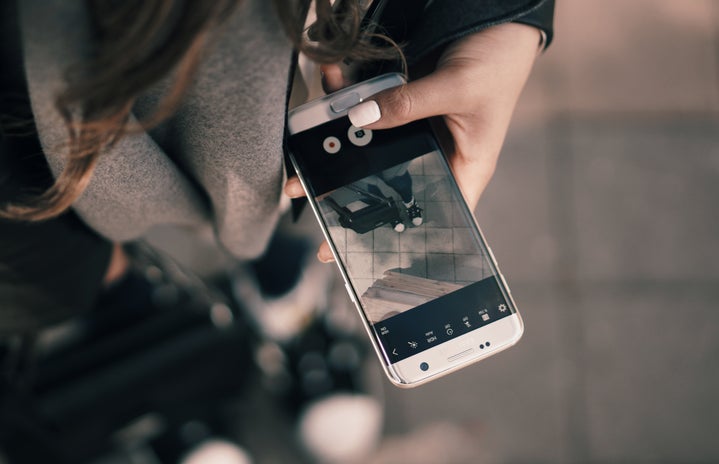As girls begin to become women, they discover a sense of self worth and develop a body image.
We carry our body image with us throughout our lives. Regardless of how we truly look, we have our own vision of ourselves.
The lucky ones have a positive body image––comfortable and confident in their bodies. They feel proud and appreciate their true selves. However, many girls develop negative body image. Feeling anxious and self conscious about their appearance, they convince themselves they are worth less than everyone else.
18-year-old model, Essena O’Neill, created a career for herself through social media. Recently, she dropped the ball when she spoke up about her views on social media. O’Neill shut down her social media accounts in order to address the issue social media is creating.
O’Neill––and many others––claims that social media is not always an accurate portrayal of life. To continue her movement, she released videos of the truth behind her “career” and the harm she inflicted upon herself to achieve the “perfect body.”
O’Neill expressed her history with extreme exercise and calorie restrictions in order to become thinner. She believed the thinner she became, the closer she was to being able to love herself.
These days, women everywhere have a tendency to connect their physical body and appearance to their value as a person. Young girls are aspiring to be like who they see on Instagram, and are going to dangerous lengths to get such results.
In a study done by Girl Scouts of the USA and The Dove Self-Esteem Fund, 63 percent of girls think the body image represented by the fashion industry is unrealistic. Even so, 60 percent say this is where they get the body image they strive for. According to the NYC Girls Project, 31 percent of girls admit to starving themselves as a way to lose weight.
The image of being “beautifully thin” has become a dangerous epidemic for girls reaching puberty. When the constant usage of social media is added into the mix, it is easy for young girls to develop mental health issues that can affect them for years to come.
A friend of mine battled her own eating disorder. “I believe social media played a big role [in it],” she said. “I was constantly exposed to people I would envy and I would obsess over pictures of their bodies. I would take screenshots of models whose bodies I wanted and set them as my wallpaper for inspiration.”
While most victims of eating disorders become isolated and private in an effort to avoid attention, the signs are sometimes right in front of us. We should never hesitate to get them help. By educating young girls on the false reality that social media portrays, we can help minimize the possibility of these girls growing up to be women with low self-esteem.

